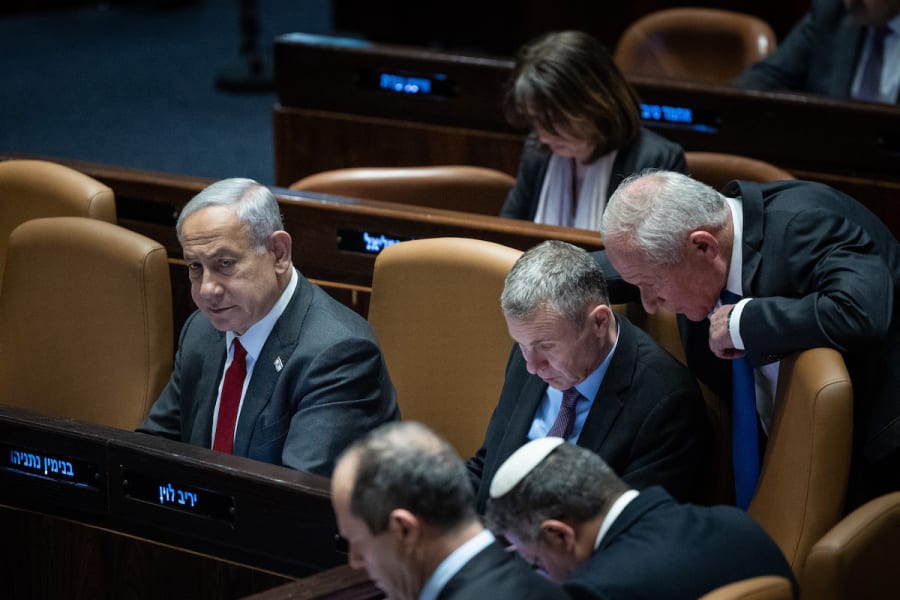Disagreements within Likud party may threaten coalition
Issues such as judicial reforms compromises and the passing of the “Deri 2.0” bill reportedly causing tensions among party members

The Israeli government’s planned judicial reforms not only causing sharp divisions in Israeli society, but reportedly also within the coalition itself.
N12 news reported that tensions are so high within the Likud party that the unity of the coalition is a stake.
Israeli Justice Minister Yariv Levin, a main driving force behind the push for a judicial overhaul, has reportedly threatened to resign from his post in Benjamin Netanyahu’s government should the original wording of the judicial overhaul be significantly changed as a result to compromises with opposition members, according to a N12 news Knesset reporter.
Netanyahu and Levin, however, say that the report was “fake news.”
Following Israeli President Isaac Herzog’s speech to the nation on Sunday evening, in which he proposed a five-point plan for “dialogue and compromise,” Levin was displeased, responding that some elements of the president’s proposal “are positive,” while others “perpetuate the existing, faulty situation.” The justice minister also noted that, in order to prevent such dialogue from being used “as a method of foot-dragging,” the discussions could not “be connected to the process of advancing the legislation.”
However, Israel’s Channel 12 news reported a “very senior coalition source” confirmed that the government would, indeed, be willing to have discussions based on the principles in Herzog’s plan.
“If the heads of the opposition and Supreme Court president announce their agreement to hold discussions based on the president’s principles, they will find partners in the government with open hearts and willingness,” the source said.
The plans for judicial reform have exposed deep divisions within Israeli society, with many fearing that such division could deteriorate into violence and even civil war.
According to one poll, more than 60% of all Israelis do not want the government to go ahead with the proposed judicial overhaul, which has been fiercely criticized by large sectors of Israeli society, and resulted in mass demonstrations in a number of Israeli cities. Protest leaders have included lawyers, judges, economists, executives and the high-tech sector.
In another poll, 60% of Israelis said they believe the judicial reform struggle will deteriorate into violence, while 35% think it could even lead to civil war. Only 31% believe that there is a “low to non-existent” chance of violence.
The judicial overhaul proposal is not the only cause for recent tensions in the government coalition.
Earlier this month, Likud members threatened to block a bill to bring the ultra-Orthodox Shas party leader, Arye Deri, back into the government, unless Netanyahu could find senior positions for two senior Likud Knesset members, David Amsalem and Danny Danon, who did not receive any ministerial positions in Netanyahu’s newly-formed government.
Amsalem, however, was appointed recently as a minister within the justice ministry.
“It’s not acceptable that for the Shas chairman, Netanyahu is pulling out all the stops, but for senior Likud officials, he doesn’t lift a finger,” Likud insiders were quoted as saying.
Deri was appointed both health and interior minister in December when Netanyahu formed his government, but was subsequently fired by the prime minister in January, when Israel’s High Court of Justice ruled that Deri was unfit to serve as minister and had to be barred from serving in the role. Deri has two prior convictions on bribery and tax fraud.
The proposed “Deri 2.0,” bill would enable Deri to return as a government minister. Despite coalition disagreements, it is expected that the bill could be presented before the Knesset as early as next week.

The All Israel News Staff is a team of journalists in Israel.













